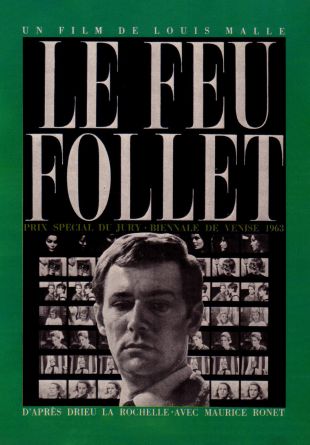
One of the most ingeniously conceived, directed, and performed feature films of early '60s Europe opened for around a week in the U.S. and faded into obscurity for the following decade; Pauline Kael heralded it as a masterpiece (and evidence of Louis Malle's genius) in her 1971 New Yorker review of Le Souffle au Coeur, which temporarily lifted The Fire Within into the public mindset. In retrospect, the reasons for Le Feu Follet's lack of initial recognition are obvious: by conceptually forcing the viewer into the psyche of a self-destructive individual and thus eliminating all onscreen feeling (the film deliberately lacks an emotional subtext), Malle alienates half of his audience. Evidently, American viewers -- still recovering from the Kennedy assassination in February 1964 -- didn't particularly want to be drawn into a state of suicidal numbness. But this feature contains one of the most dynamic aural-visual couplings in modern film. The stark, hi-con black-and-white cinematography and the Erik Satie music -- each perfectly evocative by itself -- not only accentuate but complete each other, and form an impeccable accessory to the thematic nihilism of the piece. In fact, Malle's aesthetic evocation of psychodrama was so groundbreaking at the time that it made a permanent stylistic impact on many less-inspired cinematic explorations of behavioral dysfunction -- such as Lady in a Cage, Séance on a Wet Afternoon, and Mickey One (which, not coincidentally, was also lensed by Ghislain Cloquet). Malle's narrative architecture is equally brilliant -- he structures the work like a piece of classical music, rich with recurrences and variations. And this overall démarche -- coupled with a chilling central performance in which Maurice Ronet completely disappears into the character of Alain Leroy -- enables the director to successfully craft an existential apologetic for suicide. Malle travels more deeply into the self-destructive mindset than any filmmaker before or since -- a decision that evinces boundless courage and humanistic empathy.
